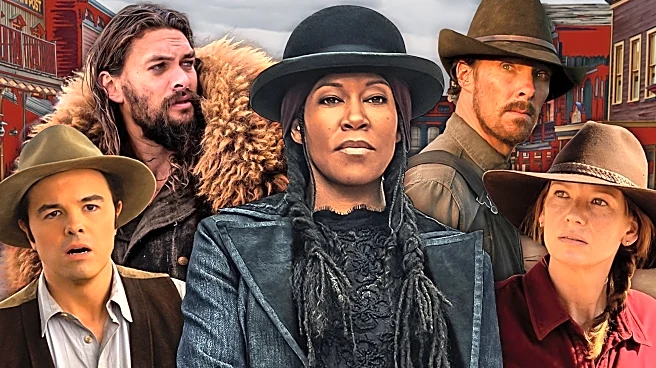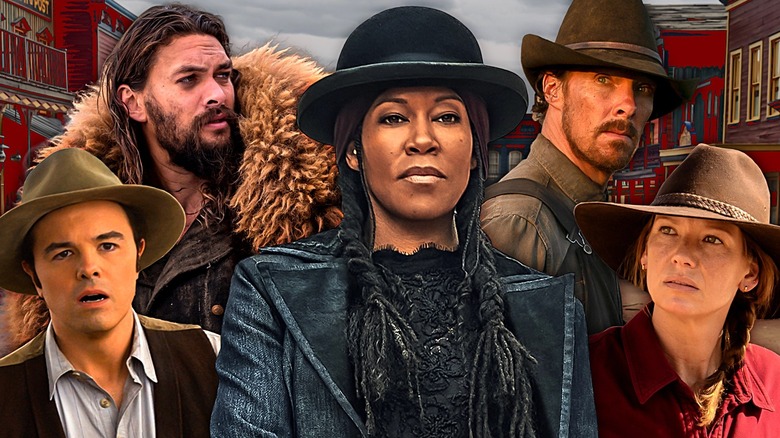
For a genre so predicated on specific markers, it's kind of amazing what a seemingly endless shelf life the Western has — maybe because the skeletal structure of a Western can, as film history has frequently
demonstrated, be applied to myriad subgenres, time periods, countries, cultures, and stories.
The selection of Westerns available for viewing on Netflix is a testament to that versatility and renewability. The strongest Western films and TV shows in the streamer's U.S. catalogue range from goofy comedy to dark fantasy, from the 18th century to the present day, and from South Korea to Canada. Here, for your convenience, is a ranking of the 15 best and most worthwhile.
Read more: The 10 Best Movies Of All Time, According To IMDb
A Million Ways To Die In The West
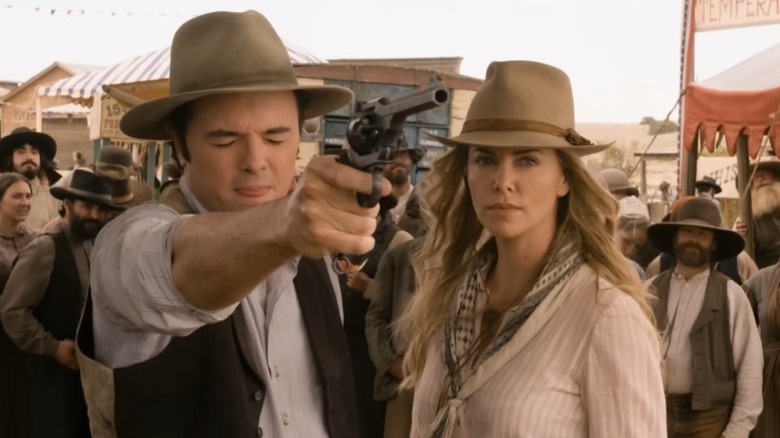
Released in 2014, "A Million Ways to Die in the West" is the second feature film directed by Seth MacFarlane. Scripted by MacFarlane, Alec Sulkin, and Wellesley Wild, it's a goofy Western spoof that veers closer to the cartoon sensibility of MacFarlane's work on "Family Guy," with a story about a constantly terrified frontier sheep farmer (MacFarlane) who falls in love with a newcomer to town (Charlize Theron), and must work up the courage to face off against her gunslinging outlaw husband (Liam Neeson).
While not as consistent or narratively put-together as MacFarlane's previous live-action comedy foray "Ted," "A Million Ways to Die in the West" is still a solid and under-appreciated slice of genre parody, which ribs Westerns with as much affection as irreverence. Not unlike an episode of "Family Guy," it maintains a reliably watchable clip even through the bits that don't quite work, and the gags that do land are often brilliantly inspired. On top of that, both Charlize Theron and Liam Neeson — the latter in a role that anticipates his self-deprecating work in "The Naked Gun" — turn in excellent, committed performances.
Paradox
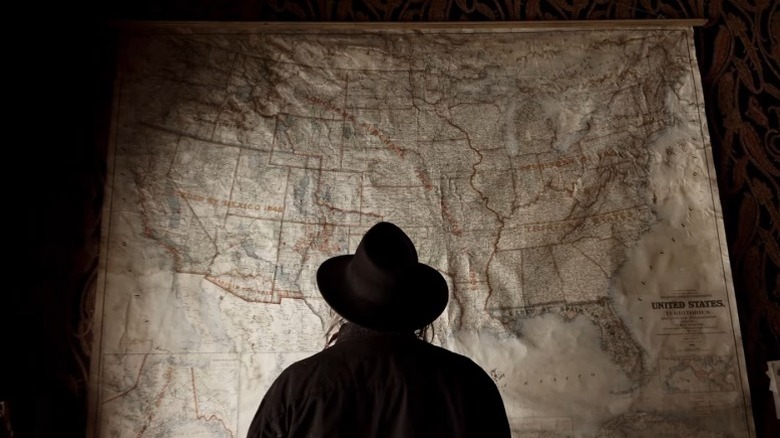
Written and helmed by legendary actress Daryl Hannah in her debut as a feature film director, 2018's "Paradox" is a 73-minute musical that acts as a kind of visual album, in tandem with the eponymous LP by Neil Young and Promise of the Real. Starring Young himself as an unnamed man in a black hat, the film follows a group of outlaws who are looking for a treasure in the mountains, while awaiting the rise of the full moon and the attending magic and supernatural phenomena it will bring about.
As a deeply personal and idiosyncratic musical that often hews closer to the feel of a series of trippy music videos than a proper movie, "Paradox" is a film that won't be to everyone's taste. But Hannah exhibits a lot of imagination and passion in her first go-round behind the camera, and her creative ideas interface with Young's to frequently engrossing and mesmerizing effect. There are a few lulls here and there, inevitably, but, all in all, if you're on its unique wavelength, "Paradox" is a good time in the same way that listening to a Neil Young record can be — and, in the musical performance sequences, it positively soars.
Wyatt Earp
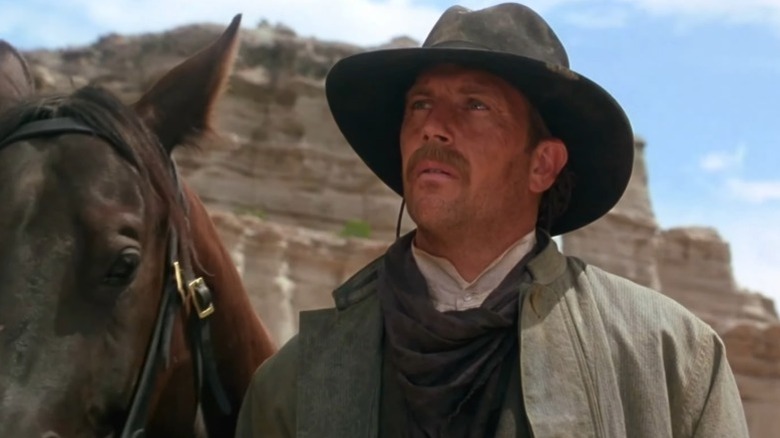
Throughout the years, there have been multiple screen tellings of the legend of Wyatt Earp, the most mythic of all Old West lawmen. But one of the best-known is the 1994 Lawrence Kasdan-directed film "Wyatt Earp." Written by Kasdan himself alongside Dan Gordon, "Wyatt Earp" is a comprehensive three-hour epic biopic that follows Earp (Kevin Costner) from his teenage years (during which he's played by Ian Bohen) through his emergence as a marshal, including his participation in the O.K. Corral gunfight of 1881.
It's not the most exhilarating movie of Kasdan's career, but "Wyatt Earp" is still an engaging and well-made old-fashioned Western that scores a lot of points for the way in which it combines genre thrills with thoughtful, dense storytelling. Costner gives one of his most accomplished performances as a vulnerable, complicated, morally conflicted version of Earp, bringing shading and color to the man trapped within the cumbersome legend. It was not well-received by either critics or audiences in 1994, but, seen today, "Wyatt Earp" feels like a relic of a time when Hollywood dramas allowed themselves to be weightier and more impressive.
Frontier
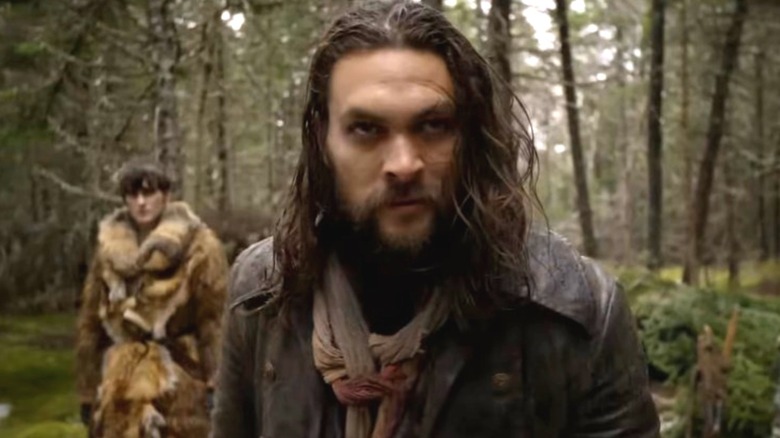
Created by brothers Rob and Peter Blackie, "Frontier" is a Canadian drama series co-produced between Discovery Canada and Netflix that aired between 2016 and 2018. Released as Discovery Canada's first-ever original scripted series domestically and as a Netflix original series internationally, "Frontier" takes place in the stark and brutal world of the Canadian fur trade in the late 18th century. Jason Momoa stars as Declan Harp, a half-Irish, half-Cree trapper dedicated to disrupting the monopoly of the Hudson's Bay Company, while being opposed by the cold-blooded Lord Benton (Alun Armstrong).
Featuring plenty of stylish photography and a familiar but effective visualization of frontier life as a site of visceral interplay between humanity and nature, "Frontier" is a very easy show to get lost in. The overarching plotting occasionally leaves something to be desired in the early going, but that's more than made up for in the sheer, banging, action-packed fun of each individual episode — and, by the time season 2 rolls around, the show as a whole significantly improves on the storytelling front. Through it all, for his part, Momoa gives one of his richest and most commanding performances.
Thar
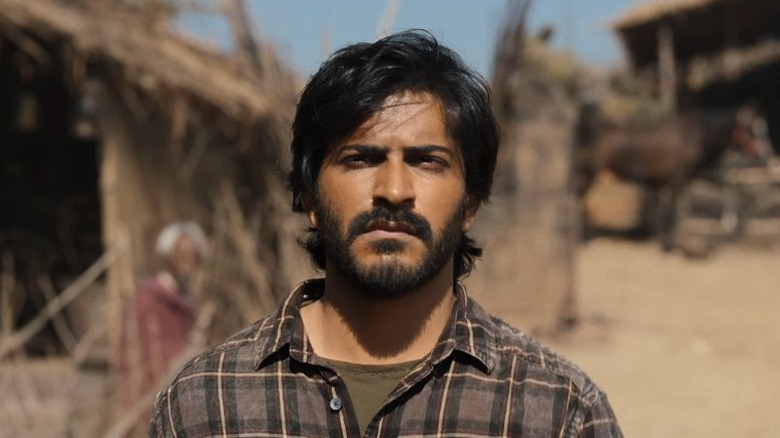
The 2022 Hindi-language Indian film "Thar" was the second directorial effort of prolific actor and writer Raj Singh Chaudhary (who also wrote the screenplay), and was released directly to Netflix in India and internationally. A sturdy action blockbuster with Western and thriller elements alike, "Thar" stars iconic Bollywood star Anil Kapoor alongside his son Harshvardhan Kapoor, with both also producing. The plot concerns a mysterious antique dealer (Harshvardhan) who comes into an isolated village in the Thar desert and crosses paths with a police officer (Anil) in the middle of a murder investigation.
The inherent "wow" factor of watching the father-son team of Anil and Harshvardhan share the screen, especially in the context of such a shifty and fraught dynamic, gives a lot of oomph to "Thar" all by itself. But this is far from a movie built around a casting gimmick; the plot is gripping and skillfully spun, and Chaudhary gives "Thar" a level of energy and rollicking showmanship that's truly searing even if you happen to be wholly unfamiliar with the actors. All told, it's the rare Netflix original actioner that actually pops.
Pedro Páramo
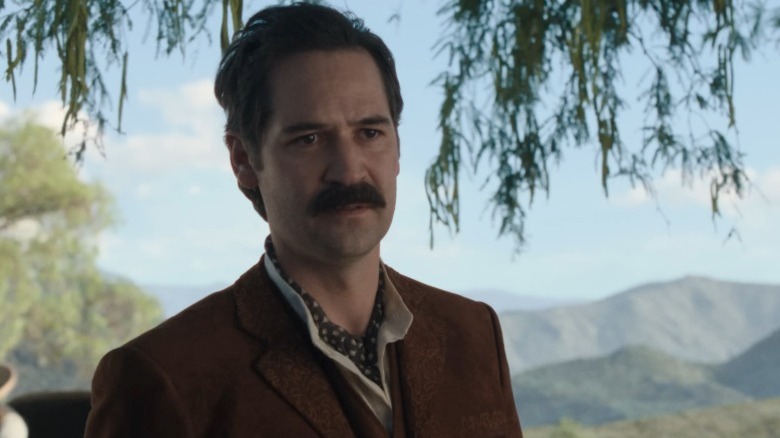
The 1955 novel "Pedro Páramo" by Juan Rulfo is among the greatest and most celebrated works of Mexican literature, as well as of all magical realist fiction in Latin America. It received a film adaptation by Carlos Velo in 1967, which played in competition at Cannes (losing the Palme to "Blowup"), and then another in 2024, scripted by Mateo Gil and helmed by superstar cinematographer Rodrigo Prieto (known for deftly handling all the pink on the set of "Barbie") in his directorial debut. In this newer version, Tenoch Huerta stars as Juan Preciado, a man who goes searching for his estranged father Pedro Páramo (Manuel García Rulfo) in a town populated by ghosts.
As suggested by that description, "Pedro Páramo" is a film that's unafraid to flow between grounded emotional realism and exuberant supernatural abandon, with both modes complementing and strengthening each other just as they do in Rulfo's novel. There are scenes here that burrow into the mind, even if Prieto's overall approach is slightly too commercial to truly bring out all the potential of a film adaptation of "Pedro Páramo." And, with Prieto at the helm, you can of course count on the movie to be absolutely gorgeous from start to finish.
Song Of The Bandits
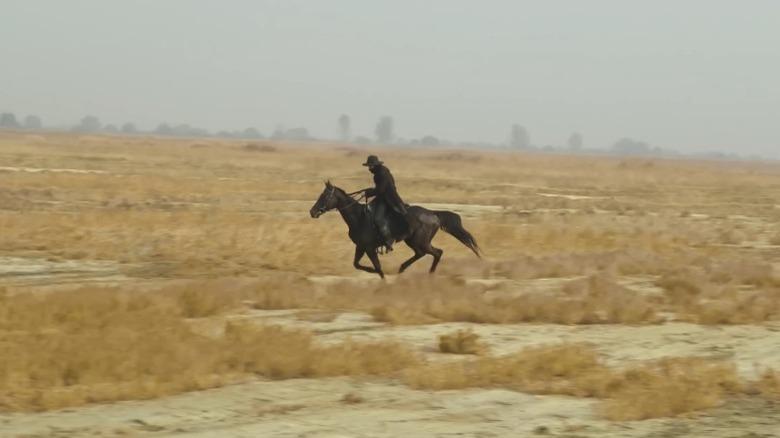
Set in the 1920s during the Japanese occupation of Korea, the 2023 South Korean series "Song of the Bandits" follows the Koreans who fled the colonial stranglehold and made a home in the Chinese border region of Gando (known in China as Jiandao). On the show, created and written by Han Jung-hoon, Gando is presented as a lawless land echoing the mythical American West, and, between bandits and activists, the characters working to make a living in this new frontier eventually band together to fight for Korean independence.
This overlooked K-drama is one of Netflix's best Westerns, craftily aligning the addictive dramaturgical sensibility of South Korean television with a surprising command of big, burly blockbuster thrills. There's something deeply compelling about the way it looks to outlaws and freedom fighters as heroic — albeit complex — figures, celebrating their courage while asking thoughtful questions about the challenges of fighting the power and assembling political resistance.
American Primeval
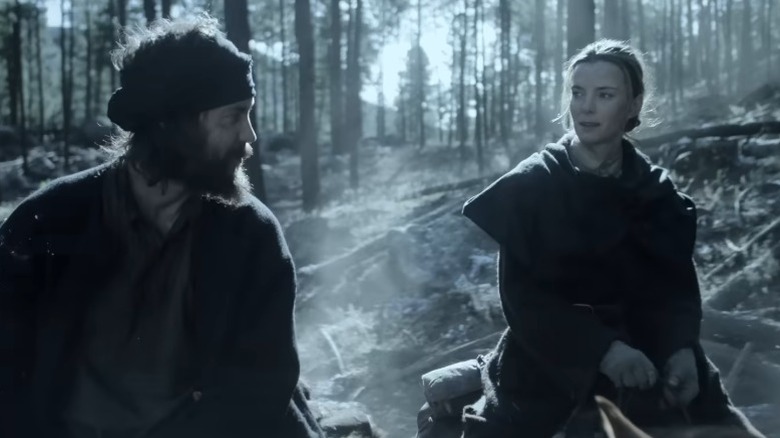
Written by Mark L. Smith and directed by Peter Berg, "American Primeval" is a 2025 Netflix miniseries that chronicles the intersection of various characters' lives during the Utah War, which saw U.S. government forces engage in armed conflict with Mormon settlers for nearly a year between 1857 and 1858. The series particularly emphasizes the lead-up to the Mountains Meadow Massacre of 1857, and, while it's largely rooted in historical research, its plot centers on a group of fictional characters, including widowed mountain man Isaac Reed (Taylor Kitsch) and fugitive husband-killer Sara Holloway (Betty Gilpin).
Other shows about that same subject matter could have over-relied on its sheer horror to make an impact, but the narrative tapestry that this brutal Netflix series weaves across its six episodes is mesmerizing, in no small part due to the efforts of a roundly excellent cast — Gilpin, in particular, runs away with the whole thing as usual. Smith and Berg are wholly unafraid of confronting the violence and brutality at the core of the United States' formation, but they make a strange, grimy, tragic poetry out of their musings on historical inhumanity.
Concrete Cowboy
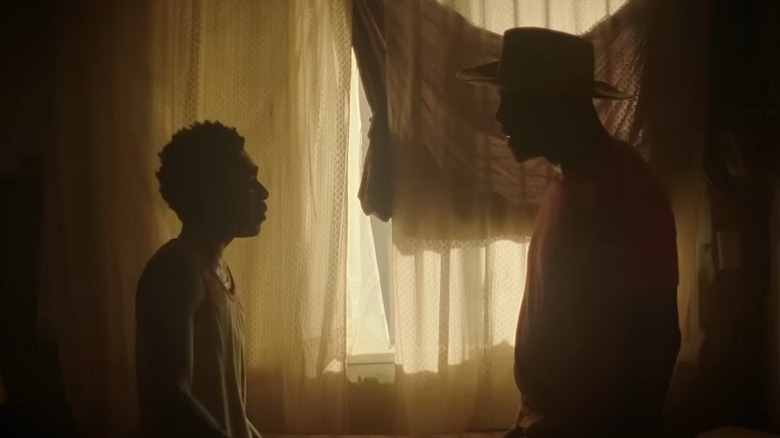
The 2020 contemporary Western "Concrete Cowboy" was the directorial debut of Ricky Staub, who co-wrote the script with Dan Walser. Notable as one of the highest-profile movie projects starring "Stranger Things" alum Caleb McLaughlin, the film, which premiered at the Toronto Film Festival in 2020 and was picked up by Netflix, adapts the 2011 novel "Ghetto Cowboy" by G. Neri. Much like the novel, Staub's film is set amid the Black cowboy culture of North Philadelphia, following a Detroit teenager (McLaughlin) who goes to spend a summer there with his horseman father Harp (Idris Elba).
The subculture "Concrete Cowboy" portrays is so endlessly fascinating on its own that the movie works just as an excuse to spend two hours soaking it in — not least because several real-life members of the Fletcher Street Urban Riding Club, to which Harp belongs in the film, appear as part of the cast. Plus, the brittle yet affectionate and strong father-son dynamic between Elba and McLaughlin is pretty much impossible to resist, especially with the support it receives from never-not-incredible cast members like Jharrel Jerome and Lorraine Toussaint.
Territory
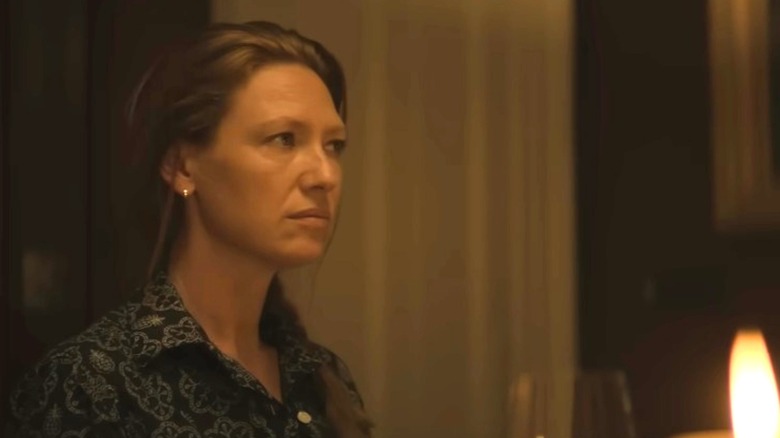
A prematurely canceled gem of the neo-Western genre, the 2024 Australian Netflix series "Territory" was created by Ben Davies and Timothy Lee and follows the Lawsons, a powerful family who owns the largest cattle station in the world in Australia's Northern Territory. Following the death of heir apparent Daniel Lawson (Jake Ryan), future possession of Marianne Station is thrown into question, and Daniel's brother Graham (Michael Dorman), along with his wife Emily (Anna Torv), find themselves at the center of a tense conflict with various forces in the region — including both ambitious rivaling dynasties and the land's Aboriginal traditional owners.
As pulpy family sagas of power and gamesmanship go, you couldn't ask for much better than what the writers of "Territory" concoct; the show is often called the Australian "Yellowstone," but it also has echoes of "Succession," with a remote, enthralling, rarely-explored world subbing in for New York City skyscrapers. It's a shame that it only lasted for six episodes, as it could have easily gone on for years of increasingly knotty Shakespearean drama, but those six episodes nonetheless stand as vital viewing for anyone who's enthusiastic about the Western genre and its many possible iterations.
The Harder They Fall
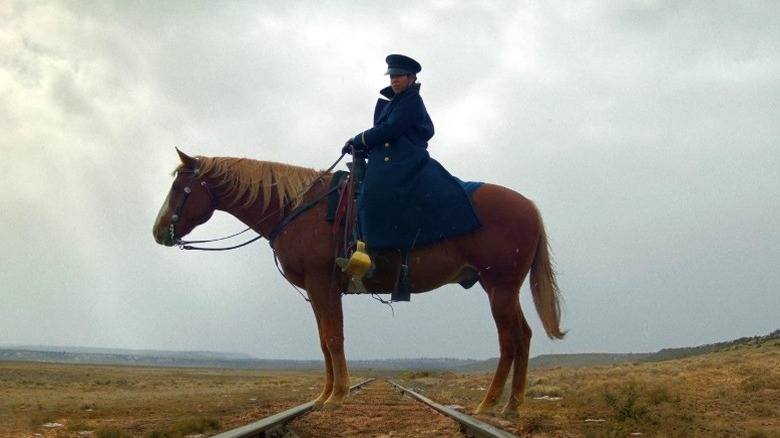
A rare example of a mainstream American Western with a 100% Black main cast, "The Harder They Fall" was directed by British filmmaker and musician Jeymes Samuel (a.k.a. The Bullitts) in his directorial debut, from a screenplay by himself and Boaz Yakin. The plot follows the brewing conflict between outlaw Nat Love (Jonathan Majors) and feared gang leader Rufus Buck (Idris Elba), who killed Love's parents when he was a child. Following Buck's release from prison, Love reunites his own gang to face Buck head-on and get revenge once and for all.
Samuel manages to get a pretty much perfect yarn out of that premise, using elements of real-life Black American history to build out a rich and heady world. There are moments when "The Harder They Fall" feels like an urgent, electrifying corrective to years of wasted potential in white-centric Western cinema, and few Netflix original movies can claim to be so entertaining from beginning to end. Then there's the matter of the cast, which also includes Regina King, Zazie Beetz, Delroy Lindo, Lakeith Stanfield, Danielle Deadwyler, Edi Gateghi, RJ Cyler, Damon Wayans Jr., Deon Cole, and DeWanda Wise — a roster of actors so gobsmacking that just watching them play off of each other constitutes an immense privilege.
The Hateful Eight
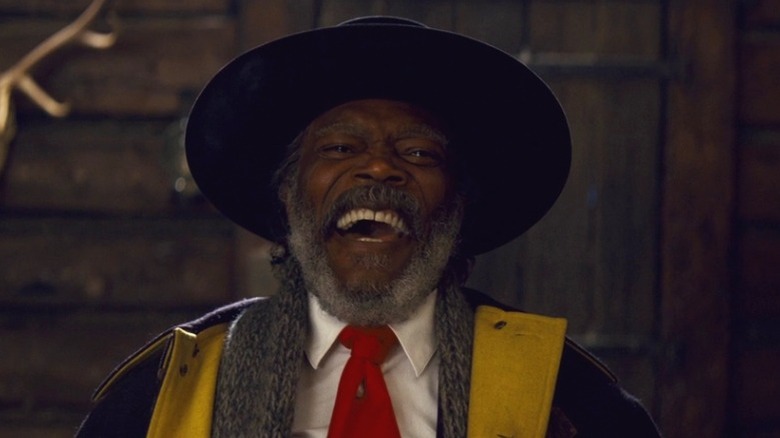
The much-touted "eighth film from Quentin Tarantino" (a description that depends entirely on whether you count the "Kill Bill" movies as separate entities, which Tarantino himself doesn't), 2015's "The Hateful Eight" finds the director eschewing his usual sweeping narratives, and instead closing in on the tensions between eight strangers who find themselves sheltered from a blizzard in the same claustrophobic stagecoach stopover in 1877 (with some inspiration from a certain classic sci-fi movie). Those eight strangers, incidentally, are played by Samuel L. Jackson, Kurt Russell, Jennifer Jason Leigh, Walton Goggins, Demián Bichir, Tim Roth, Michael Madsen, and Bruce Dern.
It's arguably Tarantino's meanest, gloomiest, most relentlessly downbeat film: All the characters are irredeemably horrible people, all the humor is pitch-black, all the violence is gruff and disturbing, and there's nary a moment where you couldn't cut through the tension on the screen with a knife ... and that's precisely what makes "The Hateful Eight" so incredible. Paring down his instincts to their elemental essence while paradoxically expanding them to an abrasively large scale, Tarantino and his incredible cast create a wicked document of America's dark heart.
The Ballad Of Buster Scruggs
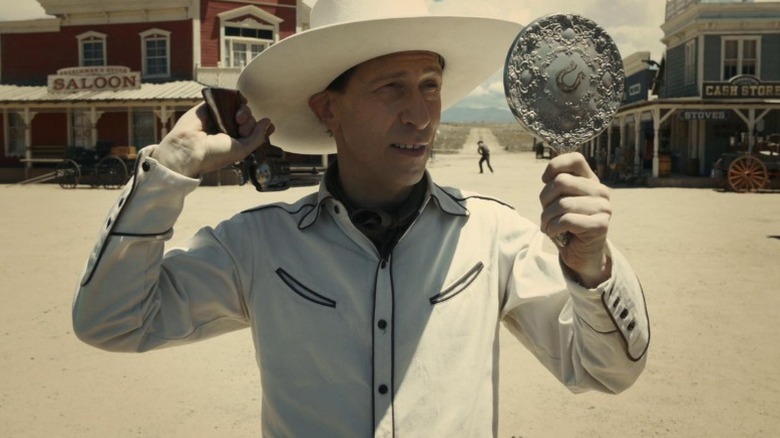
The Coen brothers first threw their hat into the ring of streaming cinema with "The Ballad of Buster Scruggs," unveiled at the 2018 Venice Film Festival before being commercially released via Netflix. An anthology film with two adapted vignettes — one based on Jack London's "All Gold Canyon," another on Stewart Edward White's "The Girl Who Got Rattled" — and four original ones, "Buster Scruggs" follows the adventures of various desperate people bumbling through frontier America, with a combination of drama, dark comedy, surrealism, and even musical stylings.
It's one of the Coens' most relaxed and purely creative films, showcasing their wide-ranging brilliance with a streak of loopy dramatic and formal ideas, while simultaneously registering as one of their most masterful and disciplined works — which is saying a lot for two of the greatest American filmmakers of all time. Rare for an anthology film, each of the six stories is profoundly engaging, affecting, and grimly amusing in its own way, and they all find the brothers toying artfully and imaginatively with the very legacy of Western cinema that informed many of their previous efforts.
Godless
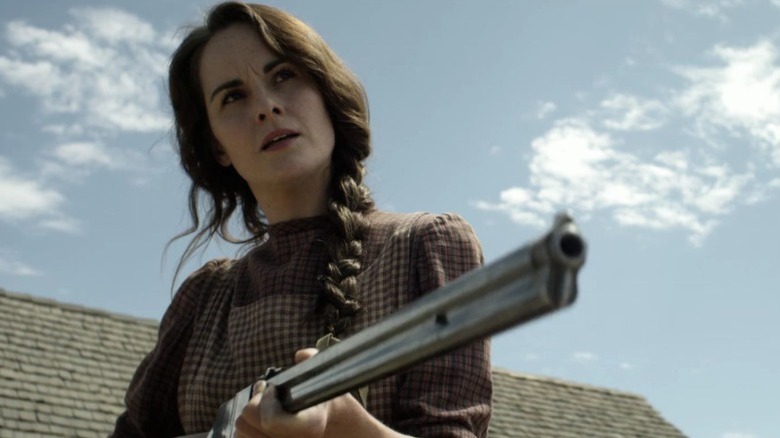
Created, written, and directed by Scott Frank (who would later break viewership records for Netflix with "The Queen's Gambit"), "Godless" tells the story of Roy Goode (Jack O'Connell), a young outlaw who runs away from the gang of the tyrannical Frank Griffin (Jeff Daniels). As Frank vows revenge, Roy finds refuge in the New Mexico mining town of La Belle, the adult population of which is made up almost entirely of women, and crosses paths with widowed ranch owner Alice Fletcher (Michelle Dockery).
Simply put, "Godless" is a perfect Western epic, so masterfully calibrated and passionately carried out by Frank that it's almost mind-boggling that he could then go and excel at something as completely different in every respect as "The Queen's Gambit." He essentially structures the saga of Roy, Frank, and the La Belle women as a patient and slow-burning eight-hour film — but, unlike most Netflix series made in that style, the un-episodic unity of "Godless" is a mighty asset, which allows Frank to build to a rousing movie-style climax while carefully tending to various strands of drama and multiple scene-stealing characters.
The Power Of The Dog
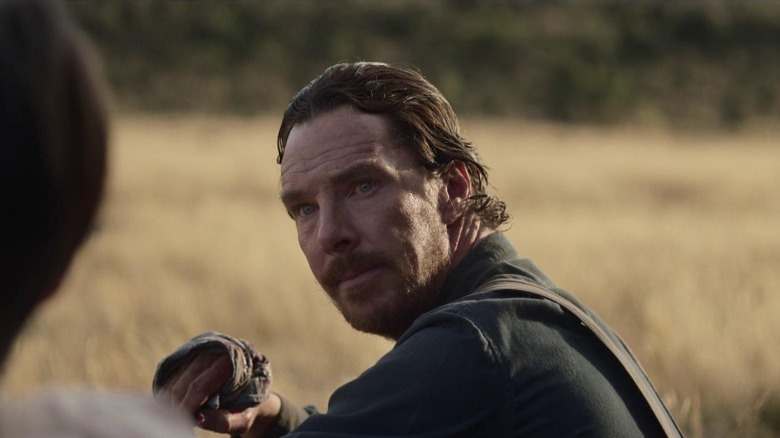
The only film to earn legendary New Zealand filmmaker Jane Campion an Academy Award for Best Director, 2021's "The Power of the Dog" is a dark psychological drama in Western garments. Adapted by Campion herself from the eponymous 1967 novel by Thomas Savage, "The Power of the Dog" stars Benedict Cumberbatch in one of his very best roles as Phil Burbank, a hot-tempered ranch owner in 1925 Montana. One day, Phil's kindly brother George (Jesse Plemons) marries widow Rose Gordon (Kirsten Dunst), and Phil reacts with hostility to Rose's arrival to the ranch alongside her son Peter (Kodi Smit-McPhee).
The less said about how that anxious dramatic setup shakes out, the better; "The Power of the Dog" is a movie full of surprises, each more galvanizing than the last. What truly makes it a masterpiece, though, is the sheer intelligence and sharpness of Campion's writing and directing, with which she actively subverts and interrogates the legacy of Western cinema with a gusto few other filmmakers in history have matched. Her camera probes into the deepest recesses of each character's soul so fluently that you don't even stop to notice how thoroughly they come alive on the screen, and all four main players rise to the occasion with career-best performances.
If you're looking for the easiest way to keep up with all the major movie and TV news, why not sign up to our free newsletter?
Read the original article on SlashFilm.
